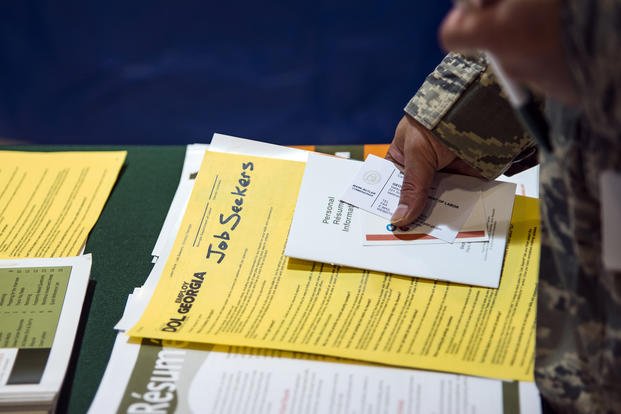With the United States experiencing historically low unemployment rates, along with an equally historic labor shortage, it would be natural to draw the conclusion that veteran unemployment is a thing of the past.
The Call of Duty Endowment, the world's largest private funder of veteran employment, says nothing could be further from the truth. Not only are certain subsections of the veteran population still struggling, but the way the government classifies "employment" is misleading, the endowment said.
In a report released on May 2 called "Lessons Learned for the Future of Veteran Employment," the endowment found the real issue with veterans in the civilian workforce is underemployment -- veterans working in jobs that are beneath their skills and experience or working positions that don't bring home enough pay.
In April 2022, the veteran unemployment rate was 3%, lower than the non-veteran rate of 3.6%, which is good news, according to the Department of Labor. Yet, within what seems like welcome news, research from Penn State University's The Veterans Metrics Initiative (TVMI) finds the rates at which veterans struggle with underemployment is much, much higher: as high as 61%.
The report also shows that 55% of veterans believe they are more experienced than the job they have called for, a significant sign of underemployment.
One of the fundamental flaws is the statistics used by the Bureau of Labor Statistics, the report says, calling them "inaccurate, not actionable and gives a false sense of achievement."
According to the report, BLS data is opinion-based and doesn't reflect actual outcomes, like payroll data, and requires veterans to self-identify.
It also inaccurately reflects veteran employment by counting odd jobs, Reserve or National Guard service, so long as the veteran makes more than $1 in a given week, as "employment."
Finally, BLS information doesn't measure employment data at the local level, only state and national levels. This kind of tracking, the report says, doesn't help find where employment and other types of assistance should be directed.
Over the previous 12 years, Call of Duty Endowment has helped more than 100,000 veterans find meaningful jobs (not underemployed), while being an advocate for the skills and experience veterans bring to the civilian world.
Call of Duty Endowment's white paper offers suggestions in the form of "lessons learned," solutions that it believes would greatly improve upon the government's current methods for helping veterans find fulfilling jobs.
The first lesson it offers is training employers and veterans how to better translate their military-learned skills and experience to the civilian sectors of their career fields. Call of Duty Endowment's nonprofit partners offer this training.
Its second lesson is providing even modest personal assistance to transitioning veterans. By providing a job interview coach or mentor, data from TVMI finds veterans are three times more likely to find meaningful employment. They are twice as likely to find a job if they have a coach to help with writing their resume.
The third lesson is focused on how the government spends money for veteran employment. It says the federal government currently spends .001% of its $300 billion budget, or about $300 million, for veteran programs on veteran employment, according to the report – a rate the Call of Duty Endowment believes must be changed.
The study says that increasing efforts toward employment reduces the need for housing and mental health programs, as fully employed veterans are much more likely to provide their own housing and are less prone to depression and suicide.
To help address the issue, the nonprofit and its parent, Activision Blizzard, will spend $30 million to continue the Call of Duty Endowment's mission over the next five years. It's a pledge that it hopes will place 50,000 more veterans in meaningful employment in that time frame.
Read the entire Call of Duty Endowment white paper at "Lessons Learned for the Future of Veteran Employment." To learn more about the Call of Duty Endowment or donate to help veterans find jobs, visit the website.
This article was updated to reflect that the amount spent on veteran employment is .001 percent of $300 billion.
-- Blake Stilwell can be reached at blake.stilwell@military.com. He can also be found on Twitter @blakestilwell or on Facebook.
Related: Should Veterans Leave the Military Service Off Their Resume?
The Next Step: Get Veteran Jobs Tips
Looking for transition and veteran jobs tips? Military.com has you covered. Subscribe to Military.com to have military news, updates and job resources delivered directly to your inbox.













